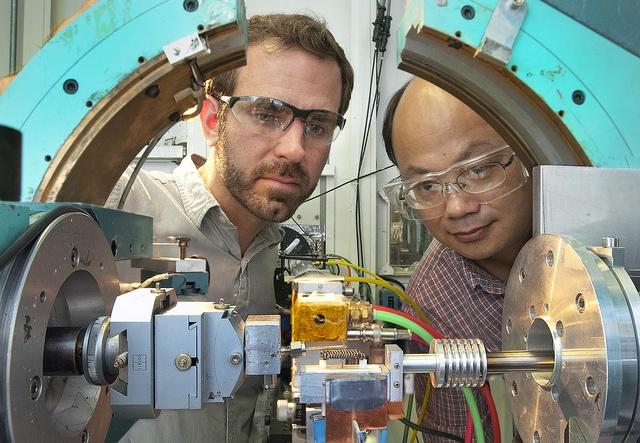
By Dr. David Lee
The energy market is sharply focused on advancing lithium-ion battery technologies -- and for good reason. While many different battery technologies are now available, lithium-ion batteries possess overwhelming advantages over other types of batteries commercially available in the market. First, when compared to existing batteries, lithium-ion batteries have substantially higher energy storage density -- requiring smaller footprint thus minimizing weight and size of the devices. The ‘memoryless’ nature of lithium-ion batteries also makes them more suitable for use in hybrid vehicles that require constant charges and discharges in stop-and-go traffic. A low self-discharge property also keeps the battery's stored electrical energy longer.
There have been so many breakthroughs over the years that, at the surface, presented viable commercial opportunities to reduce costs. Companies including Leyden Energy and A123 Systems once hailed such promising technologies, only to eventually fail due to cash constraints and an inability to produce results. This has led many within the energy storage and battery development sectors to rethink their strategies entirely, focusing on decreasing cost and increasing efficiency within the proven lithium-ion sector, as opposed to totally new and innovative battery technologies beyond lithium ion.
Many researchers and financial professionals believe energy capacity improvement with factors of five or more may be possible by advancing lithium–air or lithium-sulfur batteries, ultimately leading to our ability to confine extremely high potential energy in a small volume without compromising safety.
With that in mind, it’s important to note that there are fundamental technological barriers we still have to be overcome. Most scientists agree lithium-air and lithium-sulfur battery technologies will not be commercially viable within the next decade, thus tempering industry expectations and too often, keeping many in the industry focused on the incremental upgrades to lithium-ion battery technology.
A number of industries and markets are spurring the advancement of lithium-ion battery technology. When it comes to energy storage, you may be familiar with some of these common questions: Why can't we use our iPhones for several days without charging? Wouldn’t it be nice to be able to drive our electric vehicles from Los Angeles to San Francisco without being stranded along the way due to a low battery, or having to pull up an out-of-date map to find the nearest charging station? Why does it have to take more than 20 minutes to recharge my EV? Will we be able to purchase electric vehicles that cost about the same as comparably sized and equipped conventional vehicles, and don’t require frequent battery replacements?
Yes, it would be nice to simply answer these questions – or not have to ask them at all. All existing lithium-ion applications -- including electric vehicles, consumer electronics, battery-powered tools, large-scale grid electric energy storage, the list goes on – will directly benefit from the advancement of lithium-ion battery technologies. Furthermore, advancements in lithium-ion batteries have the potential to create an entirely new set of applications that were previously not technically feasible, e.g., electric airplanes.
The answers to these questions and others come down to battery storage capacity and cost. In other words, the hidden issue isn’t the innovation of the energy production or device/vehicle technology, but the underlying battery capabilities.
Perhaps the most dramatic and relatable example is the electric vehicle industry, as user adoption for the industry hinges on substantially lowering the cost of the battery, which will then help bring down the purchase price of electric vehicles. In addition to the low cost of battery storage, cycle life of the batteries must substantially improve so electric vehicle owners do not have to buy replacement Li-ion batteries every five years or so.
The current cost for storing electrical energy using lithium-ion batteries is above $500 per kilowatt-hour. If we are successful in reducing the cost of electrical energy storage below $100/kWh, the impact to the electric vehicle market will be immediate. This means electric vehicles can directly compete with conventional vehicles in terms of range and cost of ownership. Manufacturers can also guarantee the battery for the lifetime of vehicle use.
So, what will be the real game-changers in the industry? As referenced, the two most important and challenging objectives related to lithium-ion battery technologies are increasing the energy density and reducing the cost. In changing the way we perceive and engineer battery chemistries, these improvements may happen -- and will profoundly impact the future of both current and future consumer applications.
Image credit: Flickr/Brookhaven National Laboratory
Dr. David Lee is the CEO at BioSolar Inc., a developer of breakthrough technology to double the storage capacity, lower the cost and extend the life of lithium-ion batteries.
TriplePundit has published articles from over 1000 contributors. If you'd like to be a guest author, please get in touch!














